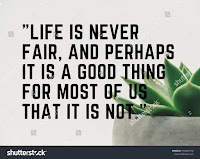A human rights lawyer shows the readers of the Catholic Peace Weekly, in the Diagnosis of the Times column, the difficulty of eliminating prejudice in society.
In a press release on October 1, the National Human Rights Commission of Korea confirmed its position on the measures necessary to resume construction of a mosque, in a city in the south of Korea. Construction was stopped by the district head and the Commission recommended the removal of advertisements expressing Islamophobia around the construction site.
In February, the district head stopped the construction, ignoring all procedures, because some residents protested due to the smell, and noise, in residential areas. In July, the court decided to suspend the execution of the administrative order to suspend construction on the grounds of "damage that is difficult to recover will occur."
Decisions by the court and the National Human Rights Commission have been made, but nothing has changed. At first, some residents only took issue with the smell and noise, but as a nationwide xenophobia group joined, the hate and discrimination against Muslims began to be expressed in extreme and explicit forms. Protests against the construction are frequently held, and in front of the construction site there is a space for opponents to make construction impossible, and banners with provocative words such as "terrorism" and "murder" even surround the walls of the residences of Muslim families.
As construction is not underway, "there is a concern that damage that is difficult to recover from" is becoming a reality. Looking at the Muslim hate banners, the wounds in the hearts of Muslim children are getting deeper and deeper. There is a serious invasion of religious freedom that denies places for worship, and religious leaders, as well as related authorities, remain silent. Why did this happen? What should I do?
Three years ago, when the Yemeni refugee situation occurred, the lawyer visited Jejudo. When he asked an official from a religious organization that was supporting refugees about his despair, he shared hope. He said, "When believers first distributed clothes to refugees at the church, they told them to put their clothes on and stand at a distance to take them. But after we began talking to one another things began to change.
Not long ago, a broadcasting station aired a documentary about the situation in Gangneung, which ordered all migrant workers to undergo mandatory COVID-19 inspections and to undergo frequent inspections to work. The broadcast focused on Gangneung residents living with migrants. “Now these people are living together. When I thought of this, I felt at ease. At first, I thought I was going to die of anxiety... . Different words and different looks make people weird... . When I try to understand, it's all the same... . We live together, can we live alone?”
An overseas broadcaster covered the story of a mosque in one of the cities, and Muslims and Korean residents coexisting with each other. There were conflicts and frictions, but there was a process of communicating and resolving them. There was a story about a resident who had a preconceived notion that all Muslims were associated with terrorists but had changed. "Isn’t there a reason God made us in different ways? Just as a rainbow is more beautiful than one color, I hope that different colors will harmonize to create a more beautiful society."
Anything new to anyone can be awkward, uncomfortable, and sometimes scary. However, such feelings do not necessarily lead to exclusion and stigma, hatred, and discrimination. There is still a need for many people to continue to advocate for human rights. The call for the correct role of the government and the media must also continue.
However, above all else, there must be a process of living together, communicating, and empathizing with residents from different backgrounds. Instead of pretending not to know the other considered 'outside' and not wanting to understand, one needs to approach the other knowing they are 'by our side' and desiring to know them.






